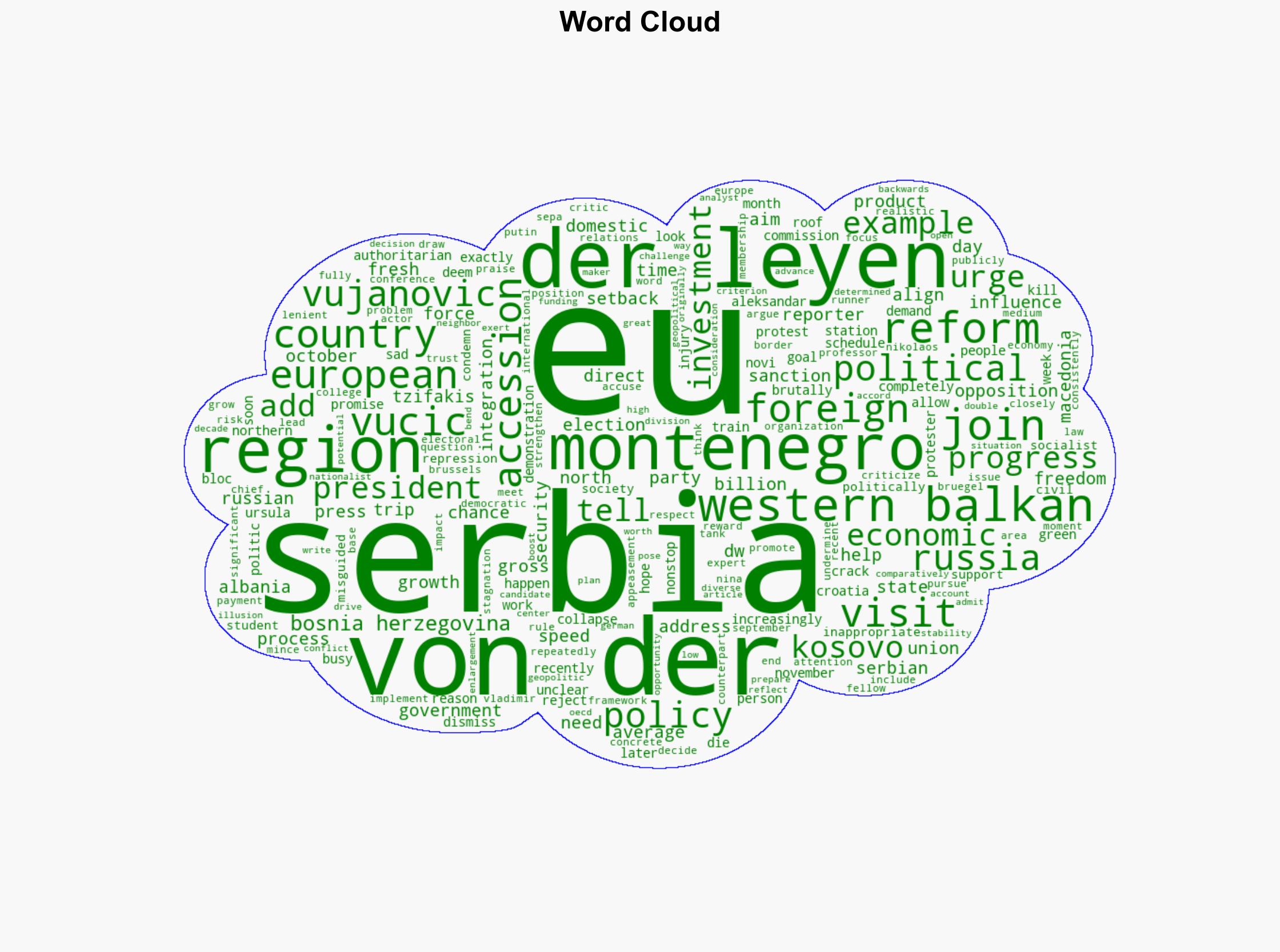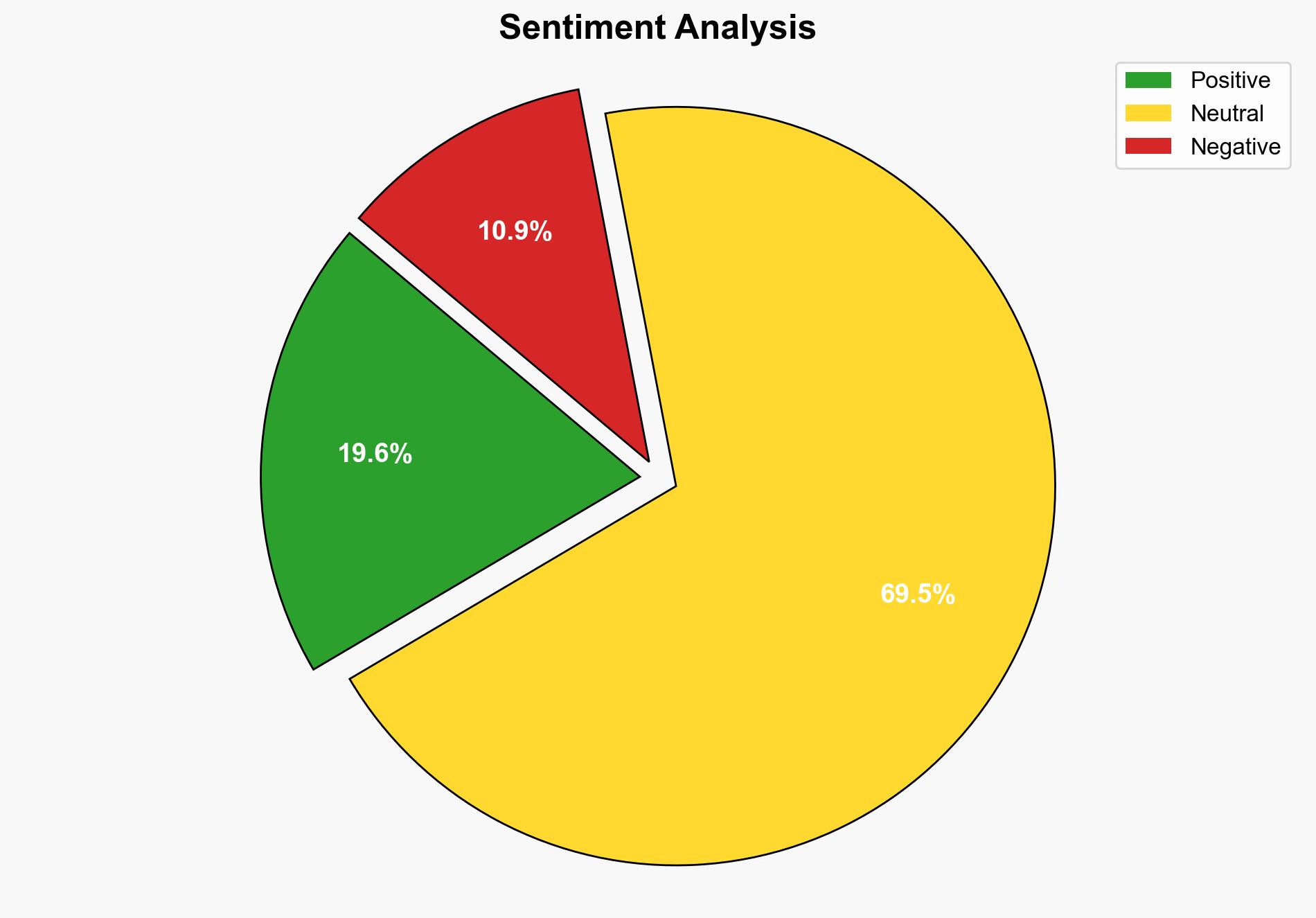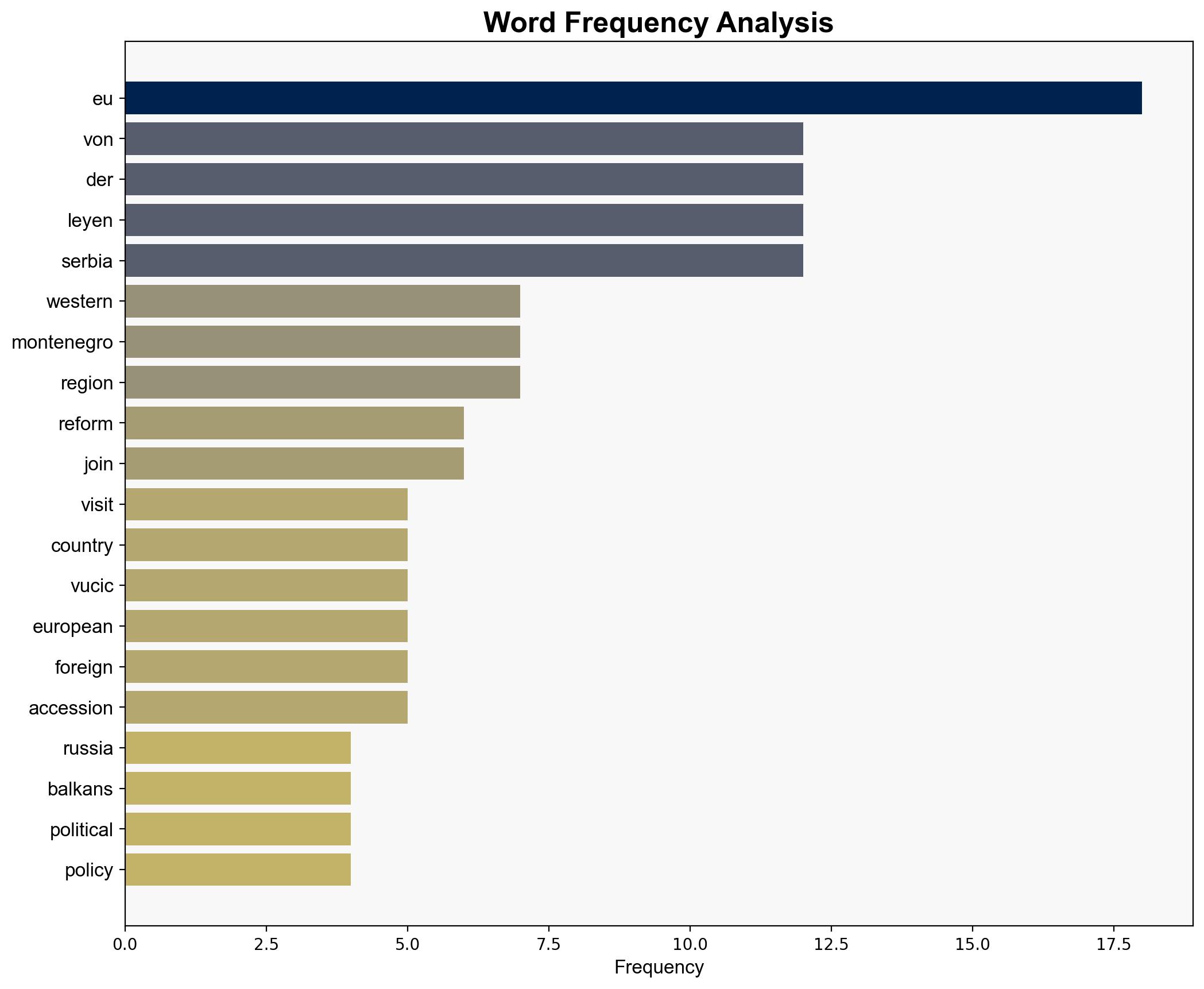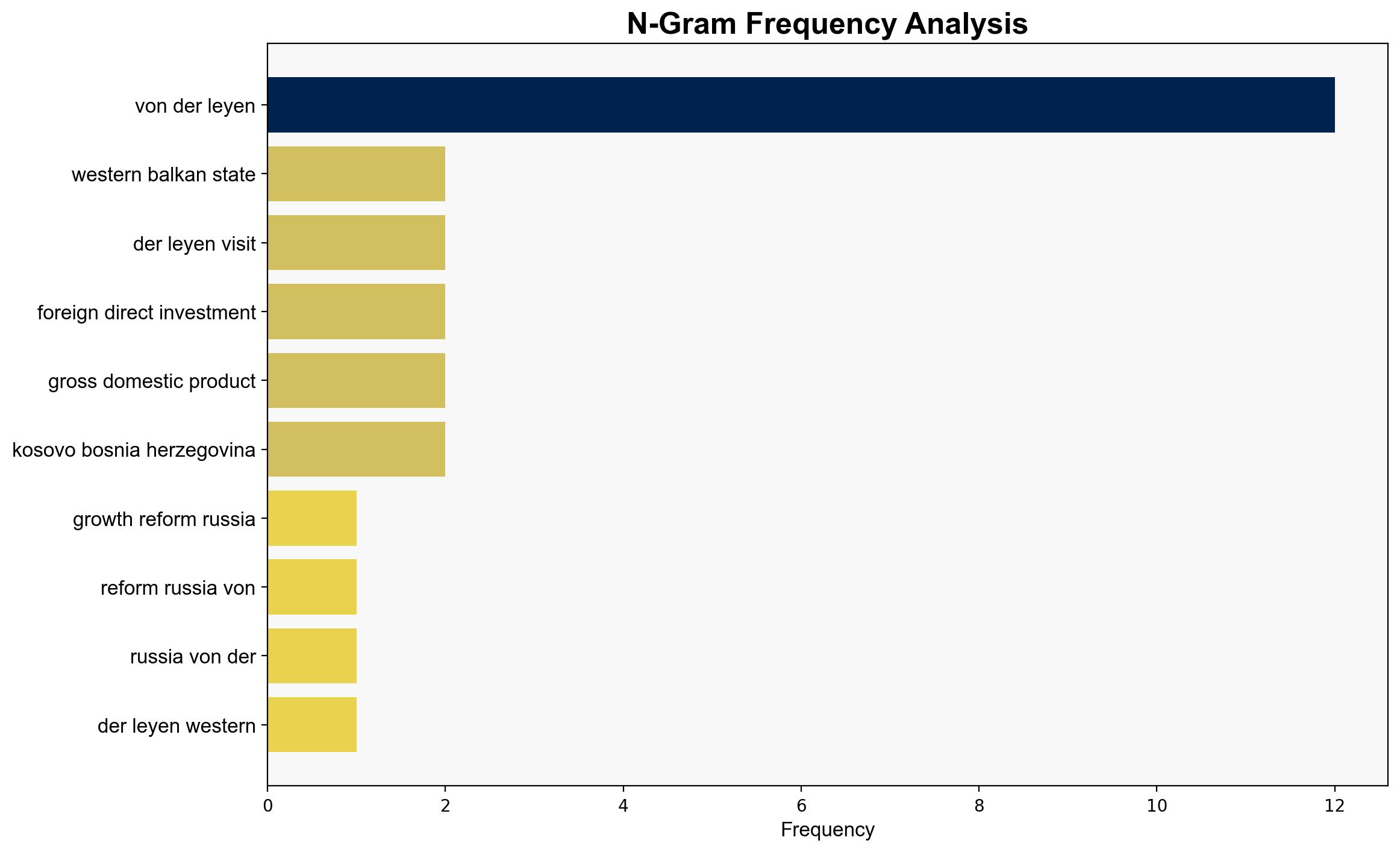Growth reform Russia Von der Leyen visits Western Balkans – DW (English)
Published on: 2025-10-16
Intelligence Report: Growth reform Russia Von der Leyen visits Western Balkans – DW (English)
1. BLUF (Bottom Line Up Front)
The most supported hypothesis is that Ursula von der Leyen’s visit to the Western Balkans is primarily aimed at reinforcing EU influence and promoting economic and political reforms to counter Russian influence. Confidence level: Moderate. Recommended action: The EU should continue to engage with Western Balkan countries, emphasizing democratic reforms and economic integration while closely monitoring Russian activities in the region.
2. Competing Hypotheses
1. **Hypothesis A**: Von der Leyen’s visit is a strategic move to strengthen EU influence and encourage reforms in the Western Balkans, countering Russian influence and promoting regional stability.
2. **Hypothesis B**: The visit is largely symbolic, with limited impact on actual reforms or geopolitical alignment, serving more as a diplomatic gesture than a catalyst for change.
Using ACH 2.0, Hypothesis A is better supported due to the emphasis on economic integration, specific reform discussions, and the strategic timing amid Russian geopolitical maneuvers.
3. Key Assumptions and Red Flags
– **Assumptions**: The EU’s influence is sufficient to drive significant reforms in the Western Balkans. Russia’s influence is a primary concern for the EU.
– **Red Flags**: Potential overestimation of EU leverage; lack of concrete commitments from Western Balkan leaders; ongoing protests and political instability in Serbia.
– **Blind Spots**: The internal political dynamics of each Western Balkan country and their historical ties with Russia.
4. Implications and Strategic Risks
– **Economic**: Successful economic integration could boost regional GDP, but failure to deliver tangible benefits may foster disillusionment.
– **Geopolitical**: Increased EU presence could provoke Russian countermeasures, potentially destabilizing the region.
– **Psychological**: Public perception of EU actions as either supportive or intrusive could influence regional sentiment and reform momentum.
5. Recommendations and Outlook
- **Mitigate Risks**: Enhance EU diplomatic efforts to ensure commitments to reforms are met, and monitor Russian activities closely.
- **Exploit Opportunities**: Leverage economic incentives to promote deeper integration and reform adherence.
- **Scenario Projections**:
– **Best Case**: Successful reforms and integration lead to stable, EU-aligned Western Balkans.
– **Worst Case**: Russian influence disrupts reforms, leading to increased instability.
– **Most Likely**: Incremental progress with ongoing challenges from internal and external pressures.
6. Key Individuals and Entities
– Ursula von der Leyen
– Aleksandar Vucic
– Vladimir Putin
– Nikolaos Tzifakis
– Nina Vujanovic
7. Thematic Tags
national security threats, regional focus, geopolitical strategy, economic integration




